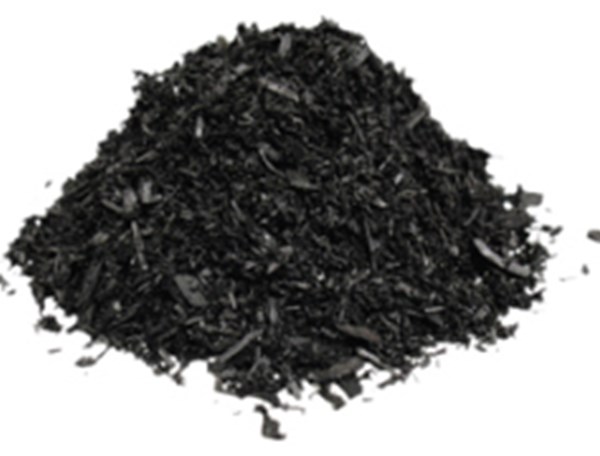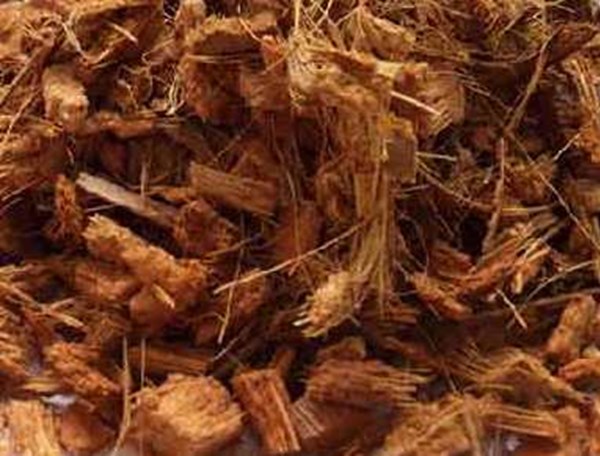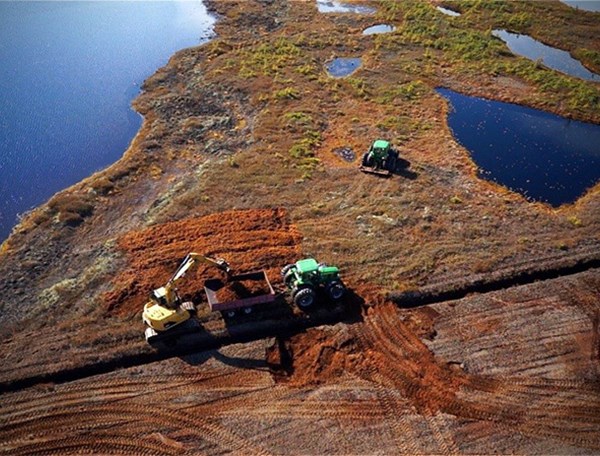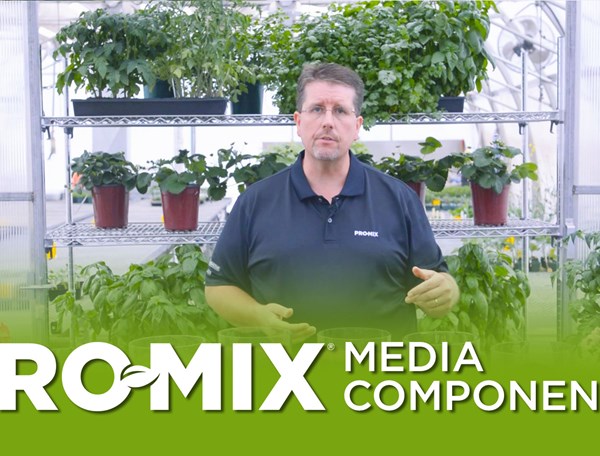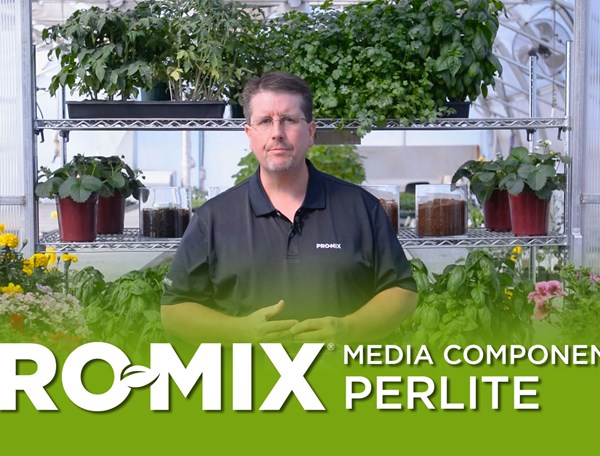- Coir – A Component of Growing Media -
Training Center
Coir – A Component of Growing Media
Thursday, September 7, 2023 | Troy Buechel
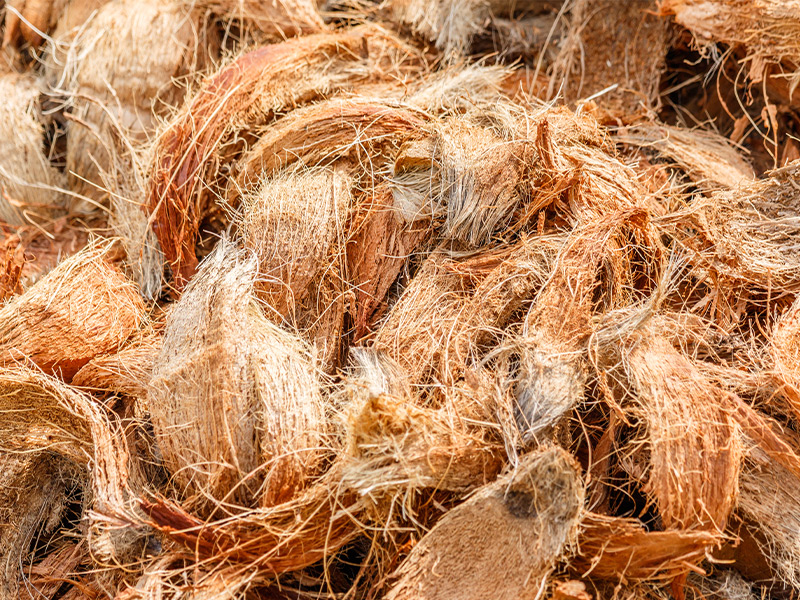
What is coco coir?
Coco coir is the term given to a range of natural products manufactured from coconut husks that are used in horticultural applications. Although sometimes referred to as ‘coco peat’, coir is not peat at all, and it is incorrect to call it by this name. Coir is the by-product of the coconut processing industry, in which coconut husks are processed to extract the fibres for various industries. Coconut husks go through a shredding process, by which the longer fibres are separated into a range of particle sizes, depending on the intended application. The left-over mixture of small fibres and dust is sold ‘as is’ and used for horticultural purposes.
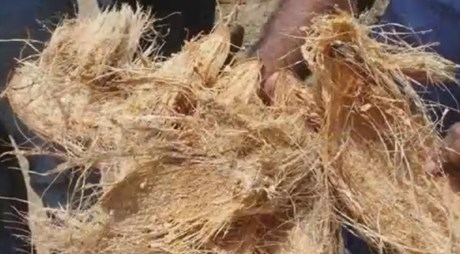
Pictured is the fibre that is extracted from coconut husks, which is used for many industries.
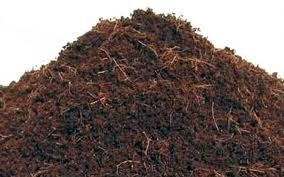
Coir pith is used in the manufacturing of growing media.
Coconut trees grow naturally in brine water and highly saline environments; therefore, the coconut husks accumulate various salts. Before it can be used for horticultural crops, it should be washed with fresh water to leach salts built up in the coconut husks, or washed with a buffer solution of calcium nitrate to leach salts and include a nitrogen source. The process not only reduces the electrical conductivity (EC) of coir but also helps to lower its pH.
Types of Coir
From the coconut husks, coir pith (also known as coir dust) and coir chips (chunks) are primarily used for growing media, whereas coir fibre typically is not. Coir pith is generally combined with Sphagnum peat moss and aggregates to produce various growing media for seed germination to general purpose growing. Coir pith is used in PRO-MIX products, such as PRO-MIX MP MYCORRHIZAE Organik for organic transplant production.

Shown are the three most common products removed from the coir husk that are used for various industries, including coir pith and coir chips used for growing media.
Coir chips (chunks) provide unique properties when used in growing media, in that these chips hold water within the particle but also provide aeration, water movement and dimensional stability within the growing medium. PRO-MIX HPCC is made with coir chunks and these products are suitable for potted crops ranging from flowering, foliage, perennials and some nursery crops.
Features and Benefits of Coir
Coir’s effect on a soilless growing medium will vary depending on its source, how it was processed, and the percent of coir used in the formulation of the growing medium. The porous and granular structure of coir has similar physical properties to Sphagnum peat moss in that it has high total porosity, and even higher available water holding capacity compared to Sphagnum peat moss. Coir has been shown to hold up to nine times its weight in water. Growing medium that contains a base of coir fibre and Sphagnum peat moss can help in rooting and germination.
Some of the properties that make coir a suitable amendment for combining with Sphagnum peat moss for growing media include:
- Excellent wetting and re-wetting capability. Coir does not have a waxy cuticle to repel water like Sphagnum peat moss, so it does not require a wetting agent. In fact, long term crops may not require a maintenance application of wetting agent.
- Growing medium with coir does not shrink from the container walls upon drying, so water does not channel down the sides when dry growing medium is irrigated.
- Coir has a high lignin to cellulose ratio and is more resistant to physical breakdown when handled and processed through horticultural equipment for filling flats and pots. It also has less shrinkage in growing containers over the life of the crop which is important for long-term crops.
- Coir provides high air and water holding capacity within the container.
- It has a slightly acidic to neutral pH range, so it does not require limestone for pH adjustment. The pH of coir ranges from 6.0 to 6.8, as compared to Sphagnum peat moss, for which the pH ranges between 3.5 and 4.8.
Growing Practices to Adjust for Coir’s Effects on pH and EC
The addition of coir to a soilless growing medium may require some adjustment and monitoring of your crop production and cultural management practices. Depending on the percentage of coir in the growing medium, the following may need to be considered:
-
Water quality
Know your water quality. Due to the initial pH range of coir, the starting pH of a coir-based growing medium can be higher than the desirable range of 5.5 to 6.2. Over time, coir will contribute to rising growing medium pH, especially if the water source used has a high alkalinity and/or potentially basic fertilizers are used. Monitor the pH of the growing medium so adjustments can be made to avoid pH increases that may reduce micronutrient uptake by the plants. -
Adjust watering practices
Peat-coir-perlite growing media will hold more water than peat-perlite growing media. In addition, the surface of a coir-based growing medium will dry more rapidly than the root zone, compared to a peat-based growing medium. Using the colour of the surface of the growing medium as an indication of when to water works for a peat-based growing medium, but is less effective for a coir-based growing medium. Growers must be attentive to not overwater crops in a peat-coir growing medium. This characteristic of the surface drying out quickly will often lead to crop growth issues from overwatering, especially in cool climates, high humidity or cloudy conditions. -
Nutritional balance
Coconut husks naturally have high levels of potassium (K), chloride (Cl) and sodium (Na). Although producers of horticultural grade coir products wash/rinse the coir to remove these and other compounds, they may still be high enough in a growing medium to elevate the EC reading. With potentially higher levels of K, Cl and Na in a coir-based growing medium, measures should be taken to provide adequate levels of Ca and Mg for proper nutrient balance for crops. Initial fertilization rates may need to be adjusted upward when going from a peat-based growing medium to a peat-coir based growing medium to ensure the optimal levels of nutrients for optimum plant heath.
PRO-MIX HPCC BIOFUNGICIDE + MYCORRHIZAE
PRO-MIX HPCC, which is an acronym for High Porosity – Chunk Coir, is a peat-chunk coir based product that is ideal for larger potted crops (4 inch - 10 cm or larger), hanging baskets and outdoor containers where higher water holding capacity is desired without sacrificing high air porosity as is characteristic of our PRO-MIX HP. The secret is the chunk coir.
Chunk coir is a small coir nugget that retains water between its fibers and releases it back to the growing medium as the plant uses the water. Also larger chunks produce big pores that hold air and not water, increasing total air porosity.
INGREDIENTS:
- Canadian Sphagnum peat moss (65-75%)
- Chunk Coir - increases water holding capacity and air porosity, improves long-term wettability and reduces long term compaction.
- Perlite (horticultural grade) - improves air porosity
- Dolomitic and calcitic limestone - for initial pH adjustment (5.4-5.8)
- Starter fertilizer charge - provides feed for one week
- Wetting agent
The addition of coir to a soilless growing medium can be beneficial in many ways. But as with any change to a different growing medium, the grower needs to be aware of potential impacts and ways to mitigate those impacts to get the best results for crop production. For more information about peat-coir based growing media, contact Premier Tech Horticulture.
For more information about organic growing media, contact your Premier Tech Grower Services Representative:
 |
 |
 |
 |
|---|---|---|---|
|
Ed Bloodnick |
Nathan Wallace-Springer |
Lance Lawson |
Victor Brantly |
 |
 |
 |
|
|
Troy Buechel |
Susan Parent |
Jose Chen Lopez |
PRO-MIX® is a registered trademark of PREMIER HORTICULTURE Ltd.
Related Articles
-
Biochar: Potential Growing Medium Component?
Have you ever heard about Biochar? This component has received a lot of attention in recent years because of its nature to lock up significant amounts of carbon, thus reducing carbon emission into the atmosphere.
-
Coir as a Component of Growing Media
Coir makes an excellent growing media component and a very good partner with sphagnum peat moss. Find out more about its different uses.
-
Peat Moss: A Sustainable Component of Growing Media
In Canada, peatlands cover 280 million acres (113.6 million hectares), or 13% of the land area of Canada.
-
PRO-MIX Growing Media Components Explained: Sphagnum Peat Moss
Horticulture Specialist Troy Buechel talks about the sphagnum peat moss ingredient used in our PRO-MIX professional growing media and its benefits for your crops.
-
PRO-MIX Growing Media Components Explained
Horticulture Specialist Troy Buechel talks about the ingredients included in our professional line of growing media such as sphagnum peat moss, bark, coir, perlite and vermiculite and their benefits for your crops.
-
PRO-MIX Growing Media Components Explained: Perlite
Horticulture Specialist Troy Buechel talks about one of PRO-MIX growing media components which is the perlite.
-
PRO-MIX Growing Media Components Explained: Coir, Chunk Coir
Horticulture Specialist Troy Buechel talks about one of PRO-MIX growing media components which is the coir.


 Where to find our products
Where to find our products
